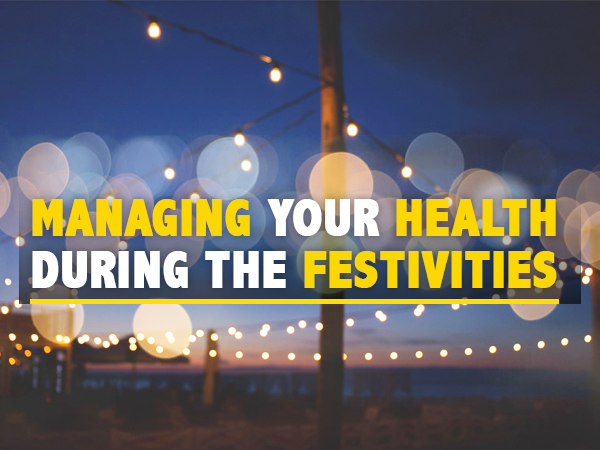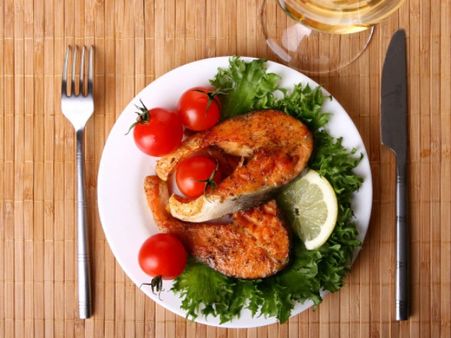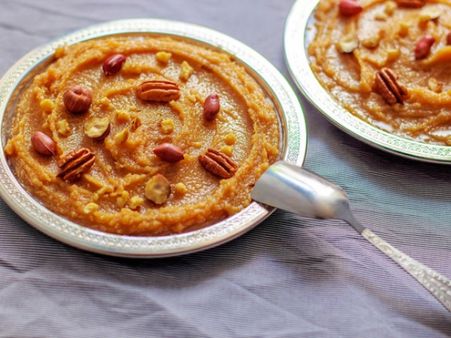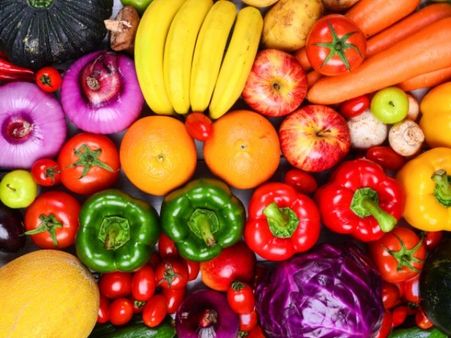Just In
- 22 min ago

- 36 min ago

- 4 hrs ago

- 10 hrs ago

Don't Miss
- Movies
 Chief Detective 1958 Episode 2 OTT Release Date, Time, Platform: When & Where To Watch? What To Expect? DEETS
Chief Detective 1958 Episode 2 OTT Release Date, Time, Platform: When & Where To Watch? What To Expect? DEETS - Sports
 IPL 2024: LSG vs CSK Award Winners, Man of The Match, Post-Match Presentation, Scorecard & Records
IPL 2024: LSG vs CSK Award Winners, Man of The Match, Post-Match Presentation, Scorecard & Records - News
 Chinese President Xi Jinping Orders Biggest Military Reorganisation Since 2015
Chinese President Xi Jinping Orders Biggest Military Reorganisation Since 2015 - Education
 Exam Pressure Does Not Exist; Studying Punctually is Crucial; Says Aditi, the PSEB 2024 Topper
Exam Pressure Does Not Exist; Studying Punctually is Crucial; Says Aditi, the PSEB 2024 Topper - Finance
 Reliance, ONGC, Tata, Adanis: Energy Stocks Didn't Get The Memo Of Bears, Up 12% In 30-Days; 10 Stocks To BUY
Reliance, ONGC, Tata, Adanis: Energy Stocks Didn't Get The Memo Of Bears, Up 12% In 30-Days; 10 Stocks To BUY - Automobiles
 Suzuki Swift Hatchback Scores 4 Star Safety Rating At JNCAP – ADAS, New Engine & More
Suzuki Swift Hatchback Scores 4 Star Safety Rating At JNCAP – ADAS, New Engine & More - Technology
 Dell Introduces AI-Powered Laptops and Mobile Workstations for Enterprises in India
Dell Introduces AI-Powered Laptops and Mobile Workstations for Enterprises in India - Travel
 Journey From Delhi To Ooty: Top Transport Options And Attractions
Journey From Delhi To Ooty: Top Transport Options And Attractions
Nutritionist’s View On Managing Your Health During The Festival Season
It is the festival season once again. And a festival is incomplete without family get-togethers, good food, sweets, and savouries and lots of laughter. But are you worried that this might hamper your health, lead to weight gain or may disrupt your blood sugar levels?
We need to understand that eating healthy and staying fit is not seasonal. Instead, it's a lifestyle that needs to be followed all the time. And when you already have a lifestyle that involves eating fresh seasonal foods, sufficient physical activity, manageable stress levels and good sleep, you can be assured that the festivities and the right food will never hamper any of your health goals.

Suppose you have lost some unwanted weight recently and you are worried about putting it back on. In that case, listed below are a few ways that will help you get through the festivities without hampering your health goals.

1. Eat planned meals:
Having the three main meals - lunch, breakfast and dinner are crucial to make sure we curb any excessive hunger and avoid bingeing. The snacks in between are essential to fill in any hunger pangs. Plan for any calorie-rich foods within these meals. This will ensure that you are not eating anything extra apart from the planned meals and snacks.
- If you intend to have a calorie-dense meal, plan it preferably for the afternoon rather than dinner. Team it up with vegetable juice or raw salads pre-meal.
- Lemon juice or lemon water is an important part of a calorie-dense meal to manage the acidity and enhance digestion.
- Keep a check on portions, and this has been elaborated in the next point.
- Avoid aerated drinks and fruit juices. These are loaded with sugar. 150 ml juice or aerated drink will have approximately ten spoons sugar. Drink wisely.

2. Manage portions:
- This is true even during non-festive times. Extra portions of food, even if healthy, will give you extra calories, that ultimately lead to weight issues and other health disruptions. The best way to manage portions is to stop eating when you are 80 per cent full.
- A mental meal plate works here. Serve your food yourself and fill your plate with half of what you would eat. Eat this food slowly and take time to relish each bite. If you are hungry, fill your plate with half of the quantity you just took and take time to chew and eat. You will be surprised at how you are already full and do not need to eat more food.
- Make sure to include vegetables and salads with your meals. These help you keep full and increase the satiety levels.

3. Keep a check on sweets:
- These are extremely calorie-dense and will not fill you up. Hence always have these post a meal and not as a snack. This will help you limit the quantity to a small piece.
- Keep a check on the number of pieces you eat in a day.

4. Include more fibre from fruits and vegetables:
- Having more fibre means you keep fuller for longer and have more satiety from the meals you eat.
- More fruits and vegetables also provide antioxidants to help fight the free radicals that we might eat through the food from outside.

5. Sleep and stress:
- Lack of sleep and high amounts of stress will reduce the impact of a healthy diet and workout schedule.
- High amounts of stress are related to abdominal fat.
- Lack of sleep is linked to excessive hunger and binge eating.
- Do not keep awake late for two days at a stretch.

6. Alcohol:
- This is harmful in more ways than one.
- Alcohol is excessively high in calories and usually is had along with high-calorie foods leading to poor digestion as well. Consuming alcohol also makes one make poor food choices. This leads to abdominal fat if taken in excess.
- Limit the alcohol intake to 2 servings at most. Do not combine this with aerated drinks or fruit juices as that will add on calories.
- Start the next day with lemon water.

7. Late-night bingeing:
- If you indulge in this, please try and keep a fast for 12 hours the next day and break the fast with fruits.
- This helps the body detox from the previous day and put a lesser burden on the digestive system.

8. Diabetics:
- Please consult your healthcare provider before you binge on festivals. Your current sugar levels, activity levels will decide how much can you eat.
- Usually, a high fibre meal coupled with a sweet will not raise the sugar levels as much.
- A 20-minute walk after meals helps control sugar levels.
- Never go two days straight without exercises. Make sure you are taking out 30 minutes every day to workout.
- This will help you burn the excess calories each day.
9. Physical activity:

On A Final Note…
This festive season aims to maintain your weight and not be on a weight loss diet. Look at your relationship with food. It is important to not fear foods, rather enjoy them in moderation. Happy Festivals!
-
 healthExclusive: New Year 2024: Let's Understand The Value Of Nutrition Resolution And Set Realistic Goals!
healthExclusive: New Year 2024: Let's Understand The Value Of Nutrition Resolution And Set Realistic Goals! -
 healthChristmas 2023: Healthy Christmas Feast To Enjoy Without Derailing Your Diet
healthChristmas 2023: Healthy Christmas Feast To Enjoy Without Derailing Your Diet -
 healthWhat Would Happen To Your Body If You Give Up Non-vegetarian Food For A Month?
healthWhat Would Happen To Your Body If You Give Up Non-vegetarian Food For A Month? -
 healthFrom Seeds to Nuts: The Must-Have Foods in a Fertility-Enhancing Diet for Men
healthFrom Seeds to Nuts: The Must-Have Foods in a Fertility-Enhancing Diet for Men -
 pregnancy parentingWhat Are The 4 Must Have Vitamins For Kids With Diabetes?
pregnancy parentingWhat Are The 4 Must Have Vitamins For Kids With Diabetes? -
 wellness5 Reasons Why You Might Want To Think Twice Before Embracing A Juice Cleanse
wellness5 Reasons Why You Might Want To Think Twice Before Embracing A Juice Cleanse -
 insyncCulinary Surprises: 4 Indian Dishes That Aren't Actually Indian!
insyncCulinary Surprises: 4 Indian Dishes That Aren't Actually Indian! -
 healthDid You Know These 4 Foods Taste Exactly Like Cola?!
healthDid You Know These 4 Foods Taste Exactly Like Cola?! -
 healthDoes This Everyday Cooking Ingredient Trigger Diabetes?
healthDoes This Everyday Cooking Ingredient Trigger Diabetes? -
 healthPesticides In Food Reducing Sperm Count: Is Your Food Pesticide-Ridden?
healthPesticides In Food Reducing Sperm Count: Is Your Food Pesticide-Ridden? -
 healthSinger Shakira Loves These 2 Indian Sweets! How To Make It Diet-Friendly?
healthSinger Shakira Loves These 2 Indian Sweets! How To Make It Diet-Friendly? -
 healthAntimicrobial Awareness Week: Do Any Foods Have Antibiotic/Antimicrobial Properties?
healthAntimicrobial Awareness Week: Do Any Foods Have Antibiotic/Antimicrobial Properties?


 Click it and Unblock the Notifications
Click it and Unblock the Notifications



